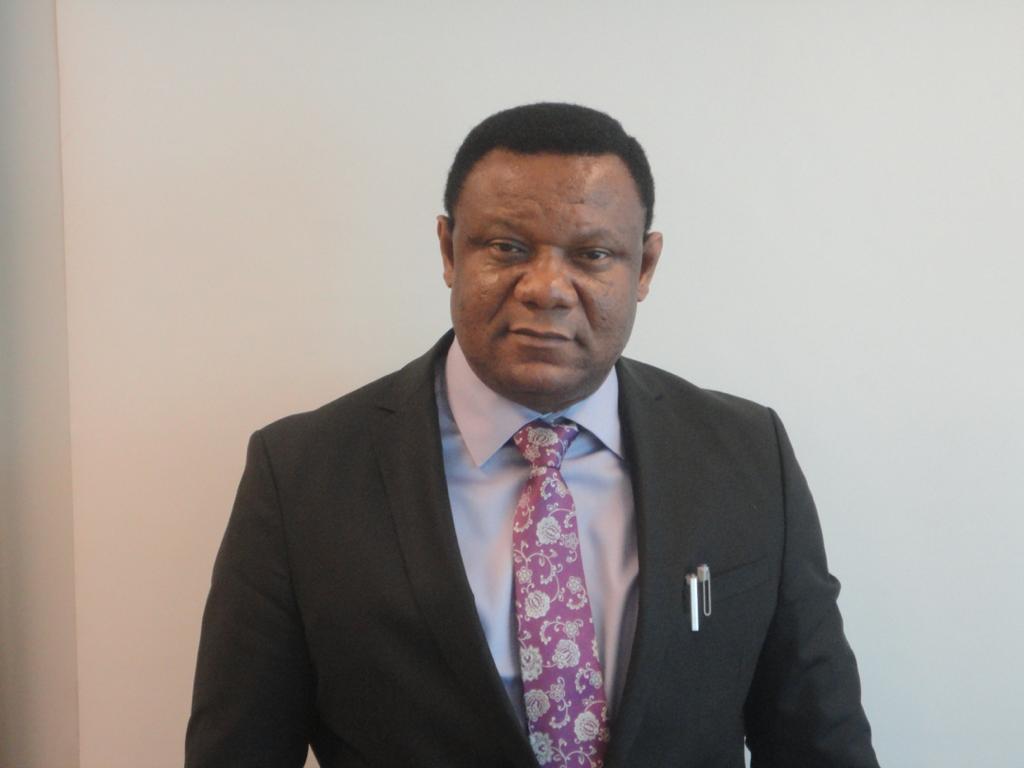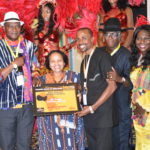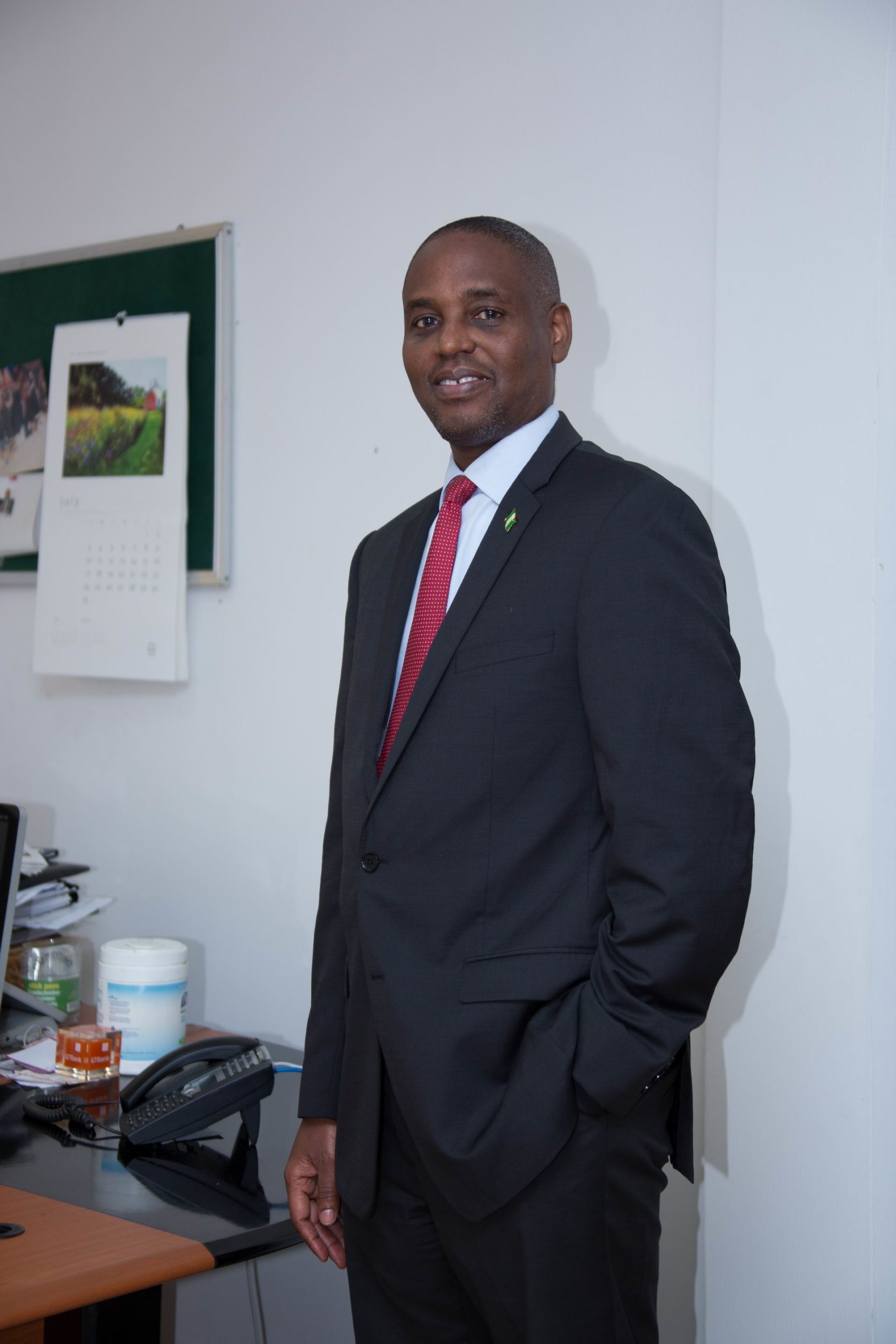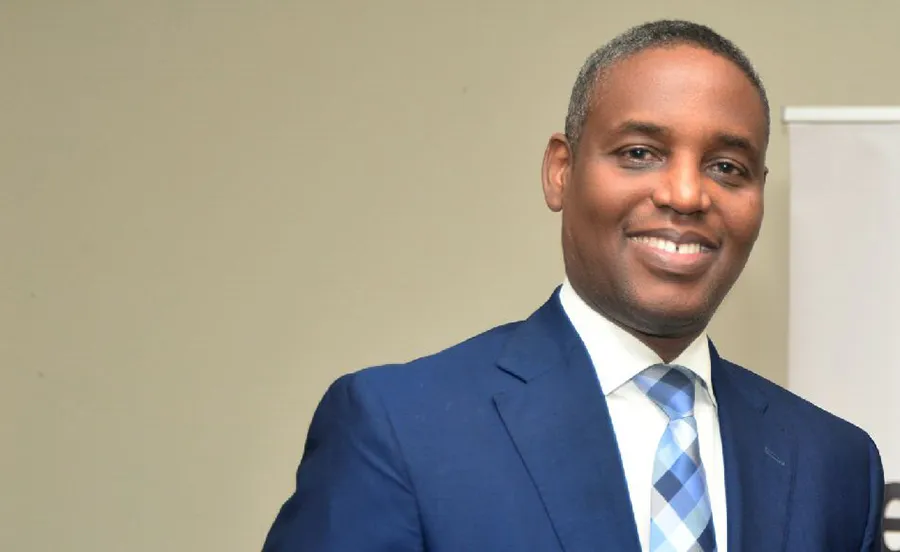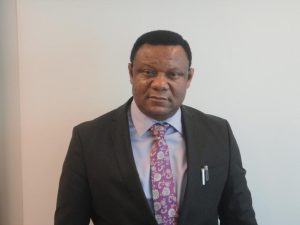
In this Interview, the Managing Director/CEO Anambra International Cargo Passenger Airport, Anambra State, Martins Nwafor said some state airports have become waste of economic resources but insisted that some others could be highly productive.
Director General of the Nigeria Civil Aviation Authority (NCAA) said recently in Abuja that many state owned airports could be waste of resources because they are not profitable. How is your airport different from others, and what is your view about its utility?
The Director General of Nigerian civil aviation authority may be correct but not in all cases, for example, in my airport, that is Anambra international passenger and cargo airport, we are not in any way a waste to the state, to Nigeria and the general aviation system globally. Some may actually not be profitable because of the way they were conceived. But I can assure you that Anambra International Cargo and Passenger Airport was well conceived and initially was a project between the Anambra State government and Orient Petroleum Resources. However, the construction of the airport was eventually carried out by Anambra State government alone and before that was done, there was a business plan outside the fact that there was a crude oil discovery by orient petroleum resources in the Anambra area where the airport was sited.
It was precisely sited at Umueri in the Anambra east local government. Just like I said, we had a business plan and that plan is working out right now. We’re just a year and seven months old and as we go on, I am going to show you what we have done. And of-course you’ll understand that profitability of an airport is not something you can talk about in one moment, it takes a while for you to talk about the profitability. For the viability, I can say yes. I will not say we are not viable because there are indications to show that we are viable. In the first place, the Anambra people do a lot of travels. It is predominantly business people. Our airport is located at the point where the farthest distance in Anambra State to the airport is about 30-35 minutes. We are closer to Onitsha, the business hub of not just south-eastern Nigeria, but Nigeria as well. Nnewi is about 30-31 km away and Awka City of the capital of Anambra State.
Have you settled issues with the Nigeria Airspace Management Agency (NAMA) about the calibration of your landing aids?
We are still on it. We paid the agency N75 million for the calibration of Instrument Landing system (ILS) and VOR (voice omnidirectional radio range). The team for the calibration came in January but left without doing anything. They collected N75 million for the calibration. They are supposed to be calibrating the ILS every six months. How can we be generating money to pay such whooping sum for calibration? Maybe it is because it is state owned airport. Recently they asked us to review our ILS and align it well for calibration because it has not been used since it was installed and it has to be calibrated before it is commissioned. They have told us they will come next week to do the calibration. We are putting everything in place to wait for them. We are hopeful that this time they will not disappoint us.
How many airlines are currently operating at your airport?
At the moment, there are two major scheduled airlines that operate into Anambra State and that is the largest airline in Nigeria today, Air-Peace and United Nigeria Airlines. In six days in a week, Air-Peace has daily operation, one inbound from Lagos and one outbound to Lagos and an inbound from Abuja and one outbound to Abuja. While United Nigeria airlines which initially started like Air-Peace, but maybe due to shortage of equipment presently does four days in a week same way, inbound Lagos , outbound Lagos, inbound Abuja and outbound Abuja. So, AirPeace uses the new Embraer 195-E2 aircraft and sometimes the Boeing 737-500/300 series while United Nigeria operates with Embraer 145. But don’t forget that when we started the operation into this airport on December 7, 2021, we had some restrictions and at that time, they were both operating Embraer 145 until sometime in March, 2022 when we obtained approval for 737 equivalent due to the improvements made in fire service, we brought in the three brand new Zeigler fire trucks from Germany. Then, of-course, claimed additional CAT-9 fire service personnel. Based on that, we began to operate Boeing 737 and its equivalents.
In additional, we also do have numerous number of private non-scheduled operation. It is important because when you look at the statistics, it would definitely count.
What is the passenger traffic like and what is the average number of passengers per week?
The passenger traffic at Anambra International Cargo & Passenger Airport is not as it should be because we are not fully operational. We still fly VFR (daylight service) but even at that, our number is encouraging. I can tell you that we do an average of 450-600 passengers a day. 450 passengers on days only Air-Peace flies into our airport, but on the days that we have United Nigeria as well, it rises to 600 passengers because United Nigeria does not operate on daily bases. So, on the average we’re looking at between 450 – 600 passengers daily and then, of-course, when you translate that to weekly, it gives you 4, 200 passengers.
What is the cost of operating the airport and how do you power the airport?
The cost of operating an airport at the moment is high. You must understand that aviation is capital intensive, so it is a bit high in the sense that we still have the Federal Airports Authority of Nigeria (FAAN) and the Nigerian Airspace Management Agency (NAMA) providing the air navigation services. We have FAAN providing fire services and aviation security while Nigeria Meteorological Agency (NIMET) is also here, provides us the weather information and all these organizations are paid on monthly basis. Each cost very huge indeed. That is majorly where we have loads of our problem now. And also, in power supply, we run eight generators in this airport even though we have EEDC dedicated 33kva power supply, but you know how many times the grid has collapsed this year, so we do more with generator sets and you know the cost of diesel very high these days.
So, these are the major aspects of the costs that we incur while running the airport these days, but I still believe that if we improve on our services and have more airline operators join us, we will be able to overcome some of them and, of-course, deal with the issue of EEDC primary power supply and to ensure that it is at least 80 or 90 per cent of the time and the rest time ran on generator. That, I believe, will be of great help to the airport.
Nigerian airports are largely dependent on aeronautical revenue. What are your plans to attract non-aeronautical business into the airport to boost the revenue?
Yes, most airports in Nigeria truly depend more on aeronautical revenue. It is a thing that is happening everywhere, we are just a year and seven months, so, we still grapple with teething problems to explore the other areas because at the moment I can tell you, we have many people who have shown interests in investing in the airport. In eateries, restaurants, shops etc. We have well-built shops in the departure halls, they are 24 in number, and other open spaces that can be worked on and now people are beginning to take them up and we have a large parking area that can take 750 cars. So, when we do these, our non-aeronautical revenue, we believe, would complement aeronautical revenue. Like I said earlier, we’re still grappling with two airlines even though we have been doing two cycles in a day. Air-Peace flies in from Lagos and goes back to Lagos and then flies in from Abuja and goes back to Abuja. Same thing united does on the days they operate.
What level of support are you getting from the state government?
The state government, which is the rightful owner of the airport, as a matter fact has been very supportive except that we still have some areas needed to complete the job. Some areas like working on the navigational aids. We have Instrument Landing System here, we have DVOR (Doppler Very High Frequency Omni Range, we also have GNSS (Global Navigation Satellite System), which is developed for this airspace. So, all we needed to do now is fly-check and as I am telling you now, we paid for that last year to NAMA because they’re the only organization that does calibration and flight check in Nigeria and we’re expecting them very soon to flight check this equipment and once that is done, we will become an instrument airfield. That money was paid by the government and there are so many other areas the government is supporting the airport to reach its optimal capacity.
DG NCAA also said that the Asaba airport runway is one of the best in Nigeria, how do you manage night landing at Anambra airport?
Yes, the Director General of Nigerian Civil Aviation Authority (NCAA) may be right, because he is the chief regulator of civil aviation in Nigeria. So perhaps during one of their inspections, they were able to come up with that. It’s not for me to begin counter what Director General has said, but I can tell you that Anambra International Cargo and Passenger Airport has the second longest runway in Nigeria with 3.7km length and Runway End Safety Area (RESA) of one kilometre on either sides and also the runway width is 45m and 7.5m shoulders on either side of the runway. For the airfield light, the airport airfield is presently equipped with runway edge lights, runway centre lights, runway threshold light, and runway end lights and approach lights on both sides of the runway. On the 06 is simple approach lighting system, while on 24 is Calvert 900m lighting system.
For the Calvert, I must be honest, we are yet to complete it but we have done about 600m and we will put the light in use soon. But however, because we’re still a VFR station, our operations are daylight operations, so we do not envisage to fly at night as VFR do not operate at night. So, the issue of night operation is not really what we consider now, but as soon as we are able to come up with NCAA’s approval, we will be able to commence night operations.
Is it possible to have entertainment hub close to the airport in order to attract more people to the airport?
Yeah, truly we’re expecting to develop a very large area. If you’re used to the airport, once you drive past the gate, you will drive almost another 500 to 600 meters before you get to the car park that’s a very large expanse of land there. It is marked for an entertainment hub. In the entertainment hub, there are a whole lot that will take place there. The hub is intended to attract a whole lot of people into the airport without necessarily getting to the proper landing area of the airport. They can have their recreation, enjoy themselves, listen to music and drink while enjoying the theme of the hub. We can also have a small theatre for film and stage performance going on there. we’re also looking out for investors to help us in developing that more. We’re consulting to get that done. We have the eatery already given out for construction. That is also facing the entertainment hub. As I said earlier, don’t forget we’re just one year and seven months old.
Do you think regulation is hard on airports in Nigeria?
Yes, I want to believe that the regulation, in this case you’re thinking of the civil aviation regulation, I think even the primary legislation too is a problem to most state and private owned airports. In situations where we still have FAAN, NAMA, NIMET to provide most of the major services and at a fee that is determined mostly by them, in as much as we sit to renegotiate, it is a big burden on some of the state owned airports.
What are your major challenges at the airport since you took over its management?
The major challenges we have since I took over are, as a beginner in everything just like we started operation in December 2021, the approval we had was highly restrictive. We were restricted to CAT E aircraft, VFR, fire service CAT 5, so it was a big challenge. But after about three months, we were able to pull in all our fire trucks and got approval for Boeing 737 and its equivalents and since then we’ve been having that. Other challenges are, of-course, there’s no little or no money in Nigeria so everybody scampers for the available be it health, education and other forms of essentials. These are the major challenges. Like I said, anything you’re starting, there are those teething problems that you cannot just run away from, they are all there, but we are getting over them gradually one after the other. As soon we have our equipment, the navigational aids and landing aids put in place properly. They have all been installed, we’re just waiting for flight calibration and fight check which the Anambra state government paid for last year.
So, as soon as we have that, our challenge will be half solved. And security was also a big challenge and it is still a challenge but at the moment we have a good number of mobile policemen at the airport, civil defense, and the village vigilante. We make use of everything that is security and we have solar lights on the airport road in and on some parts of the operational fence of the airport. These are how we’re working hard to get over the challenges we are faced with.
What are the selling points of your airport and why do you think people will prefer it to Asaba?
Our selling point in the first place lies in our location, we are located in Umueri in Anambra State, from which point you can get to the major business hub of Onitsha in less than 15 minutes, get to Nnewi in 25-30 minutes, get to Awka in 25-30 minutes, get to all the farthest town in Anambra in about 25-30minutes and you know that our people travel a lot. I don’t want to begin the comparison with Asaba, but most passengers and I mean 90% of passengers who fly into Asaba come from Anambra state. so, knowing our location and how easy it is to get to his hometown around this airport is also an advantage on the selling point and also, the facilities we are putting in place. Our navaids are already installed in the field. We have good control tower, which NAMA mans. With everything from NAMA, when I mean NAMA, it is not just the traffic controllers, they have communications office, they have aeronautical information service offices as well which is a huge advantage as well. We’re supposed to be operating CAT 9 in the fire service, that will happen soon because we have three brand six new Zeigler trucks from Germany and that is enough for us to operate CAT 9, but presently, we’re CAT 6 because of the operations we’re performing right now but what we have surpasses CAT 6 and a whole lot of things that stands us out as an airport.
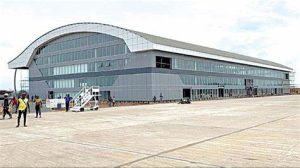
I believe when you visit, you will see most of the things I’m talking about. Of-course the size of the airport is also massive, we have space for expansion. We have people who had already applied for cargo warehouses because we already have an area mapped out for cargo ramp and we already have an area mapped out for Maintenance, Repair and Overhaul (MRO) by Air-Peace and some other companies have already applied and we still have the space to accommodate that. We have a lot of facilities that would make us a regional hub. Like I said , our location, the businesses are done in Onitsha and Nnewi in particular and the seat of administration is in Awka. So, what else can we ask for if you can get to these places easily. And you know investors will ask you, where is the nearest airport to where they are going to invest and that’s what I think makes us thick and we’ll continue to improve on all that.
How are you managing the aviation personnel like air traffic control, dispatchers, and aviation security?
The federal government parastatal that are here if I go by what you said in particular, air traffic control, dispatchers and aviation security. Well dispatchers are directly under the airlines. These are defined by the NCAA. But for the government agencies that are here, we came up with MoU signed by both Anambra state government and those organizations(FAAN, NAMA, NIMET) and so far, we don’t have any reason to bother ourselves, we work together, they are not independent. We work together under the airport management. And I think that is why they make sure that whomever they are bringing to head a department is below grade level 14 or at most 14, because our managers are 15 and above. So, the relationship is cordial so far, except that, the charges are huge and there are some charges I still feel we need to look at.


